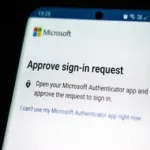General Guidelines for Creating a Strong Password
The digital age has ushered in a new era of convenience and connectivity. With just a few keystrokes, we can access our bank accounts, communicate with loved ones across the globe, shop from the comfort of our homes, and so much more. However, this ease of access comes with a significant risk – cybersecurity threats. One of the primary defenses against these threats is something we use every day – passwords.
Despite their importance in maintaining online security, passwords are often overlooked or underestimated. The reality is that creating strong and unique passwords is essential to protect your personal data from hackers and cybercriminals.
Readers like you help support TIPDIGITECH. When you make a purchase using links on our site, we may earn an affiliate commission. Read More.

In this article, we will delve into the significance of strong passwords, current trends in password creation and management techniques; as well as future prospects concerning password protection strategies.
While I can provide general guidelines for creating a strong password, it’s important to note that sharing specific examples of passwords, even if intended for educational purposes, is not advisable. Instead, consider the following tips for creating a strong password:
Example of a passphrase: “BlueSky$RainyDay#42!”
Remember that the key to a strong password is complexity and uniqueness. If you find it challenging to create and remember strong passwords for multiple accounts, consider using a reputable password manager to generate and store complex passwords securely.
Strong Passwords

Significance Of Strong Passwords
A password serves as your first line of defense against unauthorized access to your online accounts. Therefore it’s crucial that you create one that’s hard to crack but easy for you to remember.
Implications Of Weak Passwords
Weak passwords like ‘123456’, ‘password’, or even your birth date are incredibly easy targets for cybercriminals using brute force attacks (a trial-and-error method used by application programs to decode encrypted data such as passwords). Once they gain access to one account with a weak password – especially an email account – it can be quite simple for them to gain control over other accounts linked with it.
Advantages Of Strong Passwords
Stronger passwords will keep your personal information safe by making it difficult for hackers or automated software tools (bots) designed specifically for cracking them.
With more complex combinations containing numbers, letters (both lower case & upper case), special characters; you drastically decrease the odds of someone guessing or cracking your login credentials.
Current Trends In Creating And Managing Passwords
As online security threats continue to evolve, so do the methods used to protect against them. Here are some of the latest trends in password creation and management:
Use Of Password Managers
Password managers are software applications that store and manage your passwords for various online accounts. They can generate secure, random passwords for you, remember them, and automatically insert them when needed.
Two-Factor Authentication (2FA)
Many websites and services now offer two-factor authentication as an additional layer of security. This typically involves entering a code sent to your phone or email after you’ve entered your password.
Biometric Authentication
Biometric authentication is becoming increasingly common as an alternative or supplement to traditional passwords. This could include fingerprint scanning, facial recognition, or voice identification.
Future Prospects For Password Protection Strategies
The future of password protection is likely going to include more advanced biometrics and even behavioural characteristics like typing patterns (key dynamics) or mouse movement patterns.
There’s also growing interest in “passwordless” strategies such as single-use codes delivered via text message or email; however these methods have their own set of vulnerabilities.
7 Essential Tips For Creating Strong Passwords
Now that we understand the significance of strong passwords and current trends let’s dive into seven expert-recommended tips on how you can create robust credentials for your online accounts:
Length Is Strength:
Longer passwords are harder to crack than shorter ones.
Mix It Up:
Use a combination of letters (both uppercase & lowercase), and numbers; along with special characters.
Avoid Personal Information & Common Words:
Never use easily guessable information such as birth dates, addresses; pet names etc.
Unique Passwords For Each Account:
Using the same password across multiple accounts increases vulnerability if one gets compromised.
Regularly Update Your Passwords: Changing your passwords every 3-6 months adds another layer of security.
Use A Password Manager:
They can generate and remember complex passwords for you.
Enable Two-Factor Authentication:
It adds an extra layer of protection, making it harder for hackers to gain access.
FAQs
1. How often should I change my passwords?
Ideally, you should update your passwords every 3-6 months.
2. Are password managers safe to use?
Yes, reputable password managers are generally safe to use as they encrypt your stored data.
3. What is two-factor authentication (2FA)?
Two-factor authentication is a security process where users provide two different authentication factors to verify themselves.
4. Can I use biometric data instead of a password?
Biometrics can be used in combination with a password for added security but it’s not advisable to replace the traditional password entirely with biometrics yet due to potential vulnerabilities.
5. What makes up a strong password?
A strong password is typically at least 12 characters long; includes numbers, symbols, capital letters and lower-case letters; isn’t a dictionary word or combination of dictionary words; doesn’t rely on obvious substitutions e.g., “H0use” isn’t strong just because you’ve replaced an o with a 0.
In conclusion: In this increasingly digital age where privacy breaches have become all too common place, creating robust passwords has never been more important in safeguarding your online accounts from potential threats.








